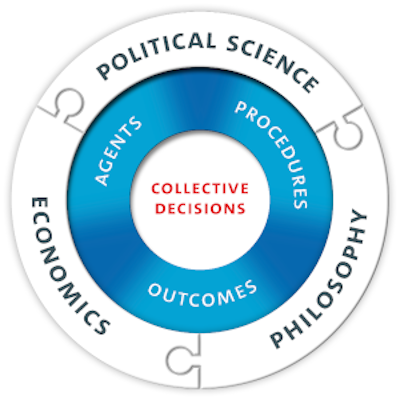About
The graduate program “Collective Decision-Making” is concerned with fundamental research on a topic of major significance for democratic societies: decision-making by a group of individuals. In modern societies many important decisions are regularly made by groups of individuals and not by single individuals themselves. These groups may be democratic polities choosing a government, a parliament passing a new law, a court passing a judgment, a group of creditors accepting the re-organization of an insolvent company, a committee of economic experts evaluating and forming a monetary policy, a set of cancer specialists deciding on a treatment plan, a military command deciding on a strategy, a management team or a governing board leading a public or private organization, and even a loose and informal group of individuals voluntarily engaged in “collective action”.
Despite the significant role of collective decision-making, its study is generally considered a specialist sub-field of economic, social and behavioral sciences and insights into its workings are hardly ever shared across different disciplines. The graduate program aims to work towards unifying a fragmented field and at the same time generating new impetus for research in this area by integrating separate strands of theoretical and empirical research and methods in economics, philosophy and political science. In addition to contributions to fundamental research, the research program will have practical implications for institutional design.
The research program seeks to advance our knowledge of collective decision-making by going beyond the traditional methodological frameworks of one discipline. It conceptualizes collective decision-making as a more complex and interactive process. The outcomes of collective decisions are the result of an interplay of individual preferences, epistemic and normative beliefs, and decision-making procedures; moreover, the procedures themselves are the result of an interplay of initial preferences, beliefs, and possible outcomes.

